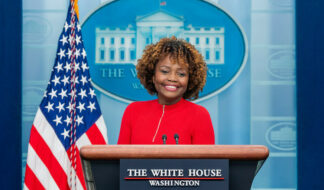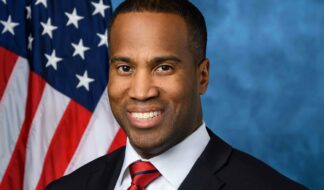Books Matter To All Communities: The Answer to Dearborn’s Protests Lies in the Libraries Themselves

“Everyone’s God-given human dignity must be respected, regardless of his or her faith, race, ethnic origin, gender, or social status.” That’s from the Qur’an — not that the protestors at Dearborn’s Public Schools board meeting espoused it.
The vocal Muslim community in Dearborn has vagrantly attempted to force their own beliefs on all children living in the city. They wish to exert so much control over Dearborn as to steal the fundamental freedom of choosing a book to read.
“Someone else’s choice doesn’t change who you are.” That’s from "Red, White & Royal Blue," a queer novel by Casey McQuiston on the list of books the protestors want to ban. Maybe they should read it.
The riotous conflict personally breaks my heart because I grew up in Dearborn and have always felt proud of my diverse community. As a child of the 9/11 era, I have long felt protective of my Muslim neighbors who unfairly suffer bigoted persecution and discrimination. That sense of compassion makes it difficult for me to write against them now, but, as Irish orator and politician Edmund Burke once said, “An event happened, upon which it is difficult to speak, and impossible to be silent."
That event was Dearborn’s Public Schools board meeting.
I am a gay man from Dearborn and books have held a special place in my heart my whole life. In fact, I studied comparative literature at the University of Michigan, so settle in for some literary analysis on this whole… debacle.
“When something is bothering me, I seek refuge. No need to travel far; a trip to the realm of literary memory will suffice. For where can one find more noble distraction, more entertaining company, more delightful enchantment than in literature?” ("The Elegance of the Hedgehog," Muriel Barbery).
Literature holds particular importance for marginalized communities because they see minimal representation of themselves in mainstream culture. Finding a story — even if fictional — with characters who resemble them, who they can relate to, can be life-changing. They offer safe havens, as well as wisdom and perspective.
"Red, White & Royal Blue" ends with this note from the author: “To every person in search of somewhere to belong who happened to pick up this book, I hope you found a place in here, even if just for a few pages. You are loved. I wrote this for you. Keep fighting, keep making history, keep looking after one another.”
Does that sound like a novel worth banning?
The protestors think so. As the Muslim population approaches a majority in Dearborn, a growing group of them demand the power of imposing their own religious beliefs on everyone else. Islam struggles with an unfortunate discomfort toward the LGBTQ+ community; however, Muslims should be more aware than anyone of the severe harm inflicted by prejudice and ignorance.
“God loves justice and those who strive to practice it, especially toward people who are different from them in any way, including in matters of religious belief.” (Qur’an, 5:8 and 60:8). Members of the Dearborn Muslim community may not agree with LGBTQ+ books, but that does not mean they should attack them. It certainly does not give them the right. No one in this country — whether they are part of the majority or minority — can decide what anyone else reads, thinks or believes.
And yet, I understand why they feel uncomfortable with LGBTQ+ topics. Muslims are not alone. Many socially conservative groups — and older generations — struggle to grasp modern sexualities and gender identities. Until recently, these relationships simply were not portrayed in media or taught. For too long, a hypothetical perfect image of a family was portrayed as a husband and wife with a couple kids. But “If we only fell in love with people who were perfect for us, then there wouldn’t be so much fuss about love in the first place.” ("Rules of Civility," Amor Knowles).
“But the truth is, also, simply this: love is indomitable.” ("Red, White & Royal Blue"). LGBTQ+ love pervades all demographics and no extreme measures will stamp it out. The demands of these protestors will accomplish nothing but psychological, emotional, and perhaps physical harm to children and teens who feel attacked and alone.
Banning books from libraries happens in authoritarian countries like China, Russia and Iran — or in the dystopian worlds of science-fiction novels. Not in the United States of America in the 21st century. That is not who we are. Never was and never should be.
It must be said that the Muslim community has received terrible treatment from Americans who misunderstood them and made prejudiced assumptions. Yet, “There are so many ways of being despicable it quite makes one’s head spin. But the way to be really despicable is to be contemptuous of other people’s pain” ("Giovanni's Room," James Baldwin). What if instead of mimicking that hatred, we came together and respected each other?
“It is not the eyes that are blind but the hearts” (Qur’an 22:46).









